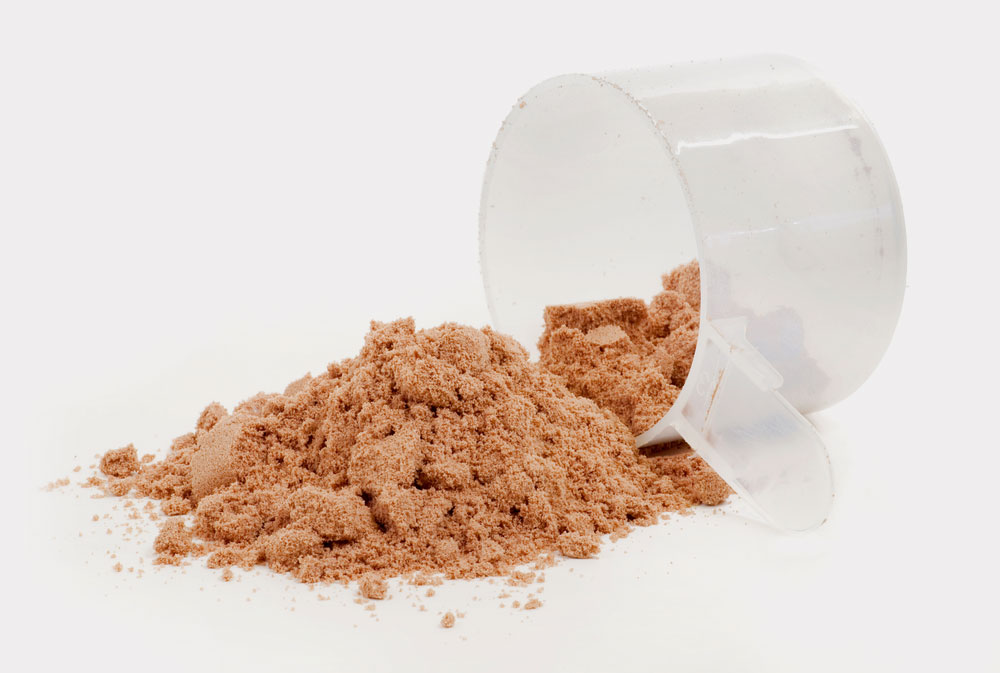WHO urges ban on high levels of sugar from fruit puree in baby food
WHO urges ban on high levels of sugar from fruit puree in baby food
High sugar content may be threat to first teeth and affect food preferences in adulthood

Commercial baby foods contain too much sugar – even when they are labelled as savoury meals, says the World Health Organization, which is seeking a ban on added sugars in foods for children under 36 months old.
WHO Europe is calling for a crackdown on the high levels of sugar in the diet of babies fed on commercially available foods, warning that their first teeth may suffer and they are at risk of developing a preference for sweet foods, which may lead to overweight and obesity-related disease in adulthood.
It also says sugar-laden baby foods are being inappropriately marketed for babies under the age of six months, even though the WHO recommends exclusive breastfeeding up to that age.
An analysis from WHO Europe of what was for sale in the UK, Denmark and Spain in 2016-17 showed that commercially available baby foods generally complied with guidance on salt, protein, fat and carbohydrate, but many products were high in sugar.
Sugars accounted for 70% of the food calories in fruit purees, but the purees were also added to savoury meals. “Many savoury type meals sold in the United Kingdom and Denmark derived over 15% energy from total sugars, with fruit purée providing much of the sugar content even in ostensibly savoury products,” said the WHO report.
These can be considered free sugars, just as they are in fruit juice, and if eaten frequently “may pose a threat to the very young as first teeth erupt”. The sweetness may also influence the child’s food preferences as they grow up, said the report.
The report, described as a discussion paper, sets out WHO Europe’s recommendations for a “nutrient profile model” for baby foods.
The WHO says all added sugars, including fruit juice concentrate, should be banned from all commercial baby foods. No foods should contain more than 5% of pureed fruit by total weight, particularly in savoury foods. Dry savoury snack foods, such as biscuits, should not have more than 15% of calories supplied by sugar.
Fruit drinks and juices, sweetened cows’ milk and milk alternatives, confectionery and sweet snacks should not be marketed as suitable for infants and young children up to 36 months.
The WHO says the labelling of sugar in baby foods needs improvement. Many baby foods in the UK have misleading labels, it says. Cow & Gate’s butternut squash, chicken and pasta for babies from seven months does not name the largest vegetable component, while chicken is only 9.5%. It suggests it should be renamed “Tomato pasta with butternut squash and chicken”. Heinz strawberry, raspberry and banana puree sold for babies from four months does not have the main ingredient in the name. It should be called concentrated apple puree (79%) with banana (8%) and raspberry (5%), it suggests.
The lead author, Dr João Breda, head of the WHO European office for prevention and control of noncommunicable diseases, said they were very concerned about the high levels of sugar in baby foods and the labelling of products.
“In these commercial products we found a very significant amount have added sugar,” he said. “There is way too much sugar. Added sugar in many products should be eliminated, in our view. The total amount of sugar is also too high in many products. And we have issues with marketing. A lot of products are marketed as suitable at four months and under six months, totally against the WHO guidelines.”
Although babies like the sweetness of breast milk, it was important to let them explore different tastes after six months, he said. “We are talking about diversification of the diet at six months. It is really crucial you have products that are not only sweet products. If babies are exposed to different tastes from the beginning, they will be more willing to try other things.”
He said there was already a move to reformulate these products in the food industry, which he hoped governments would encourage.
A second report finds widespread inappropriate promotion of commercial baby foods in four countries – Austria, Bulgaria, Hungary and Israel, all of which are in the WHO’s Europe region – even though guidance on the claims that can be made was agreed in 2016.
Across all four countries, 28% to 60% of baby foods were marketed as suitable for under six months, in violation of the WHO’s code. The agency recommends exclusive breastfeeding up to six months. Between a third and three-quarters of products made health claims, which are also not allowed under the guidelines, and 16% to 53% had cartoon characters on the labelling, which is not recommended because it encourages “pester power” in children. Sweet flavours predominated in the products.
Since you’re here…
… we have a small favour to ask. More people are reading and supporting The Guardian’s independent, investigative journalism than ever before. And unlike many news organisations, we have chosen an approach that allows us to keep our journalism accessible to all, regardless of where they live or what they can afford. But we need your ongoing support to keep working as we do.
The Guardian will engage with the most critical issues of our time – from the escalating climate catastrophe to widespread inequality to the influence of big tech on our lives. At a time when factual information is a necessity, we believe that each of us, around the world, deserves access to accurate reporting with integrity at its heart.
Our editorial independence means we set our own agenda and voice our own opinions. Guardian journalism is free from commercial and political bias and not influenced by billionaire owners or shareholders. This means we can give a voice to those less heard, explore where others turn away, and rigorously challenge those in power.
We need your support to keep delivering quality journalism, to maintain our openness and to protect our precious independence. Every reader contribution, big or small, is so valuable.





